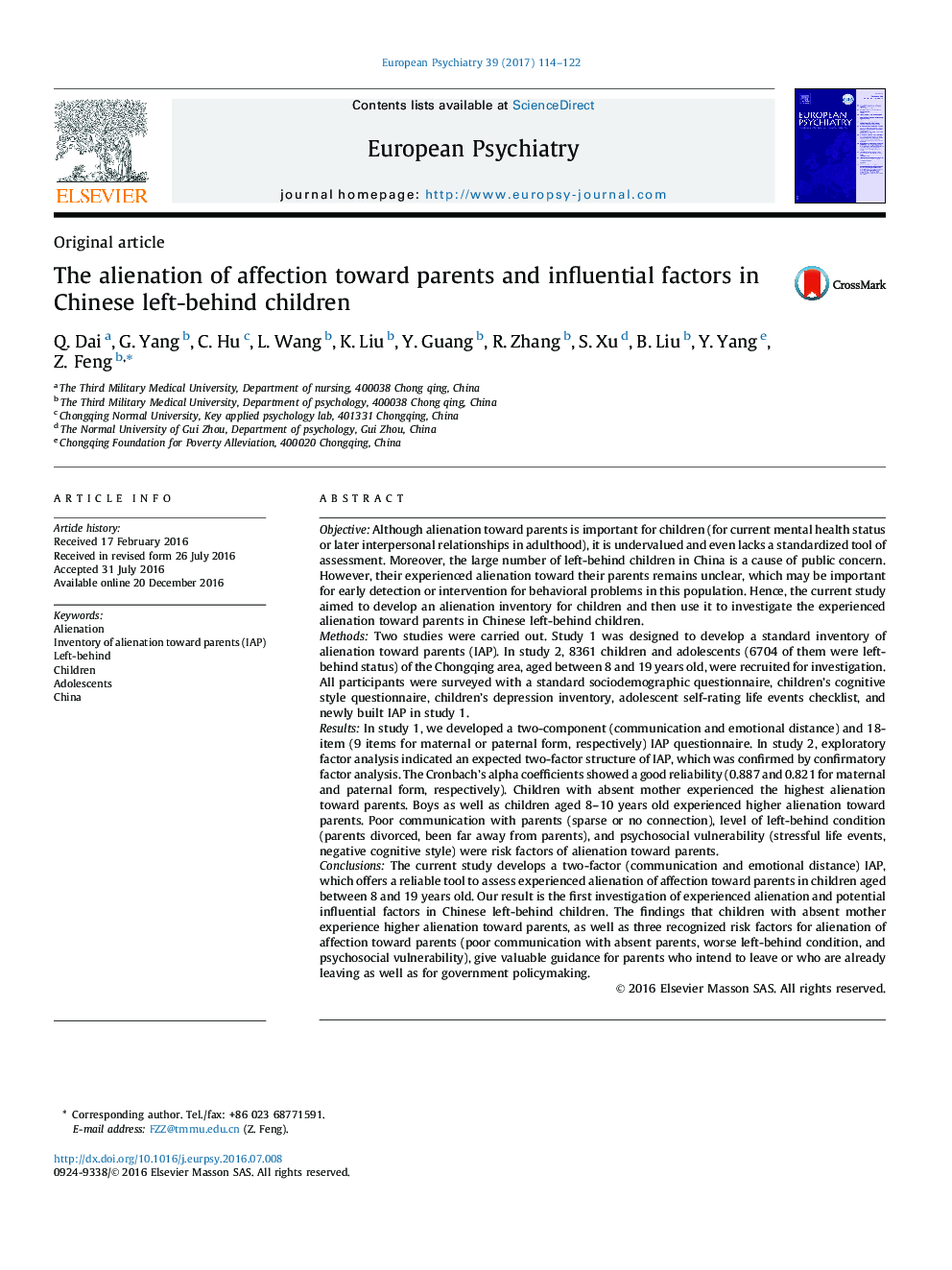| کد مقاله | کد نشریه | سال انتشار | مقاله انگلیسی | نسخه تمام متن |
|---|---|---|---|---|
| 5721626 | 1608051 | 2017 | 9 صفحه PDF | دانلود رایگان |
ObjectiveAlthough alienation toward parents is important for children (for current mental health status or later interpersonal relationships in adulthood), it is undervalued and even lacks a standardized tool of assessment. Moreover, the large number of left-behind children in China is a cause of public concern. However, their experienced alienation toward their parents remains unclear, which may be important for early detection or intervention for behavioral problems in this population. Hence, the current study aimed to develop an alienation inventory for children and then use it to investigate the experienced alienation toward parents in Chinese left-behind children.MethodsTwo studies were carried out. Study 1 was designed to develop a standard inventory of alienation toward parents (IAP). In study 2, 8361 children and adolescents (6704 of them were left-behind status) of the Chongqing area, aged between 8 and 19 years old, were recruited for investigation. All participants were surveyed with a standard sociodemographic questionnaire, children's cognitive style questionnaire, children's depression inventory, adolescent self-rating life events checklist, and newly built IAP in study 1.ResultsIn study 1, we developed a two-component (communication and emotional distance) and 18-item (9 items for maternal or paternal form, respectively) IAP questionnaire. In study 2, exploratory factor analysis indicated an expected two-factor structure of IAP, which was confirmed by confirmatory factor analysis. The Cronbach's alpha coefficients showed a good reliability (0.887 and 0.821 for maternal and paternal form, respectively). Children with absent mother experienced the highest alienation toward parents. Boys as well as children aged 8-10 years old experienced higher alienation toward parents. Poor communication with parents (sparse or no connection), level of left-behind condition (parents divorced, been far away from parents), and psychosocial vulnerability (stressful life events, negative cognitive style) were risk factors of alienation toward parents.ConclusionsThe current study develops a two-factor (communication and emotional distance) IAP, which offers a reliable tool to assess experienced alienation of affection toward parents in children aged between 8 and 19 years old. Our result is the first investigation of experienced alienation and potential influential factors in Chinese left-behind children. The findings that children with absent mother experience higher alienation toward parents, as well as three recognized risk factors for alienation of affection toward parents (poor communication with absent parents, worse left-behind condition, and psychosocial vulnerability), give valuable guidance for parents who intend to leave or who are already leaving as well as for government policymaking.
Journal: European Psychiatry - Volume 39, January 2017, Pages 114-122
